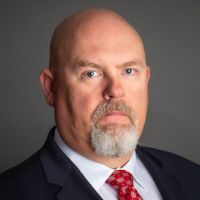Irwin Estate Lawyer, Ohio
Sponsored Law Firm
-
 x
x

Click For More Info:
-
R. Lasko Co. LPA, LLC
1406 W 6th St STE 200, Cleveland, OH 44113» view mapBusiness, Estate, Real Estate, Employment Competent Legal Representation
Let R. Lasko Co. LPA, LLC handle all your legal needs today!
216-574-2602
Dennis Murphy O'Neil
✓ VERIFIEDEstate, Wills & Probate, Estate Planning, Trusts
Practice limited to trust and estate planning since 1992.
Dennie O'Neil is a practicing lawyer in the state of Ohio.
Jeffrey Eugene Buskirk
✓ VERIFIEDEstate, Estate Planning, Estate Administration, Wills & Probate, Power of Attorney
Jeffrey E. Buskirk & Associates is a law firm practicing domestic law, social security, and probate.
My name is Jeff Buskirk. I have practiced divorce, dissolution, and custody law and social security disability law since 1989 in Grove City, Ohio. We... (more)
Theran Jacob Selph
✓ VERIFIEDAccident & Injury, Personal Injury, Wrongful Death, Police Misconduct, Estate
Columbus Ohio Personal Injury Attorney
Theran J. Selph, Sr., focuses his practice in the areas of personal injury, motor vehicle accidents, wrongful death, and represents injured victims th... (more)
Elisabeth C. Duesler
Medicare & Medicaid, Wills & Probate, Estate Planning, Family Law
Status: In Good Standing
Jeffrey A. Easterday
Estate Administration, Wills & Probate, Gift Taxation, Estate Planning
Status: In Good Standing
Russell N. Cunningham
Estate Administration, Estate Planning, Limited Liability Companies, Business Successions
Status: In Good Standing
Troy A. Callicoat
Agriculture, Estate Planning, Environmental Law, Family Law
Status: In Good Standing
Aaron Patrick Miller
Commercial Real Estate, Estate Planning, Business, Bankruptcy
Status: In Good Standing Licensed: 11 Years
Aaron Brett Epling
Wills & Probate, Estate Planning, Estate, Criminal
Status: In Good Standing Licensed: 10 Years
 Ronald Lasko Cleveland, OH
Ronald Lasko Cleveland, OH AboutR. Lasko Co. LPA, LLC
AboutR. Lasko Co. LPA, LLC



